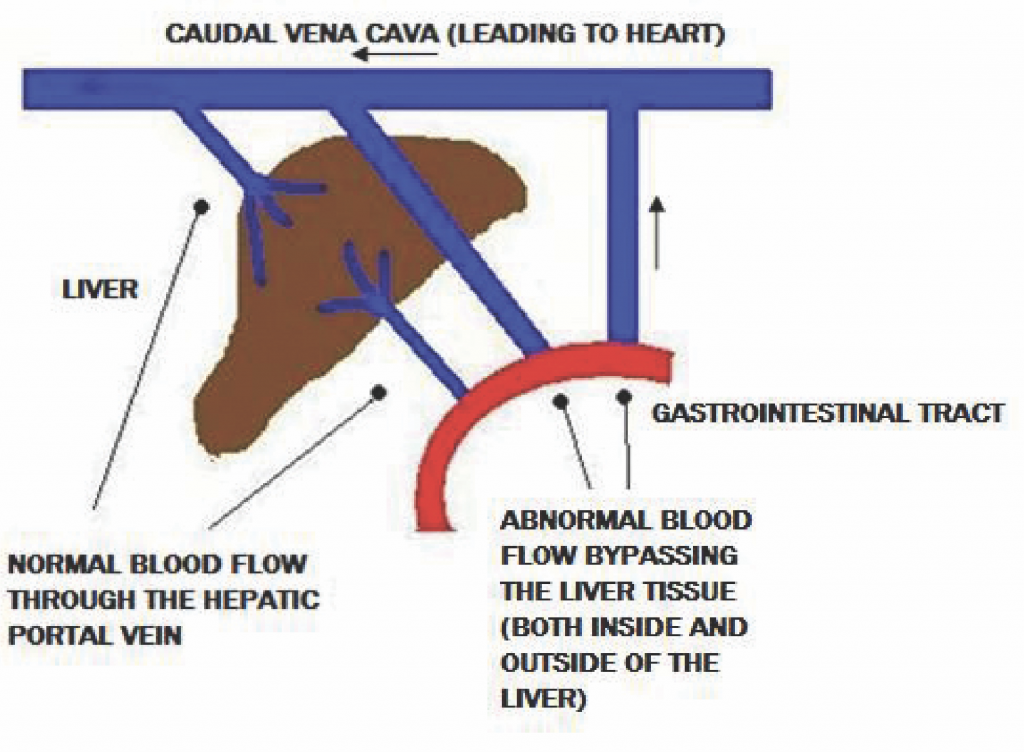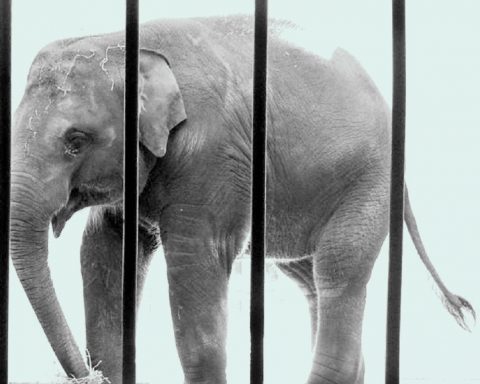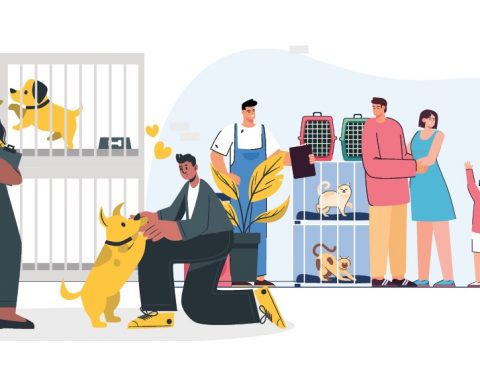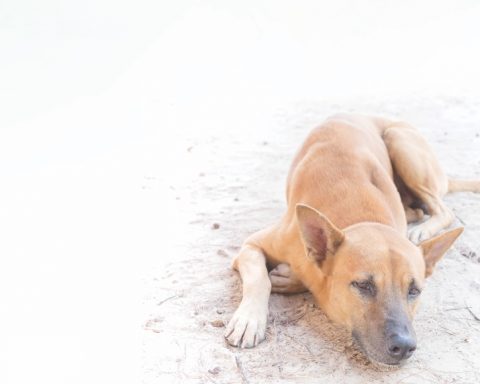HEPATO PORTAL SHUNT / LIVER SHUNT AN EMERGING PROBLEM?
Over the last ten years there has been an emerging problem diagnosed in small breed dogs primarily, affecting Chihuahuas, Yorkshire terriers, Shih Tzus and French bulldogs mainly but it can happen in any dog although pedigree dogs appear to be worst affected.
This problem is as a result in a fault in the development of the blood circulation that perfuses the gastrointestinal tract and the liver. The body is an intricate system and what seems like a minor circulation problem can have profound effects on the whole metabolism and health of an animal. Sometimes the clinical signs of this illness can be so obtuse that a clinician may have problems diagnosing this problem.
In a healthy normal animal, digestion of ingested food in the intestine results in the formation of ‘impure’ products and toxins that are absorbed into the capillaries in the intestine, these then enter the hepato-portal vein, a blood vessel that transports all these products in this ‘dirty’ blood to the liver. The liver is a fabulous organ, is filters all this blood, takes out all the toxins and potentially harmful by-products of digestion and then returns ‘clean’ blood via the hepatic vein to the caudal vena cava and thus the general circulation. This blood will now be full of nutrients, glucose, fatty acids, amino acids ,minerals, vitamins etc all the raw materials needed by cells throughout the body to survive.
There are complications when there is a fault in this system, what happens is that the animal is born with an abnormality, a fault that happens during the embryonic development of the animal. The problem lies in that a blood vessel remains that feeds the blood absorbed from the intestine directly into the vena cava or the hepatic vein(general circulation) therefore bypassing the liver and the filter system.
As a direct result of this unfiltered blood entering the general circulation the animal will develop a clinical illness. Symptoms vary from animal to animal, in many cases there is not a complete shunt therefore clinical signs can be nuanced.
What one has to understand is that there is no abnormality in the actual liver or its function, the problem is that blood from the intestine enters the blood directly. What this means is blood feeding the liver via the hepatic artery will carry in these waste products so eventually the blood will be ‘cleaned’ but not after it has made various circulator passes throughout the body. This explains why the clinical signs can be varied as there are many different elements involved!!
Possible clinic signs:
• Weight loss
• Anorexia
• Polyuria/polydipsia ( drinking and urinating excessively)
• Cystitis
• Kidney stones
• Gall bladder stones/sediment
• Nervous signs, e.g head pressing, fatigue, depressed, not alert, ( hepatic encephalopathy)
• Poor coat
• Seizures/ epileptic fits
Treatment of this condition tends to be very effective and rewarding with the animals leading a normal life. Surgery is an option in a small number of cases but the mortality rate is high so it is difficult to advise clients to go down this route. Even with surgery medical treatment is still required afterwards. Medical control to reduce the absorption and production of toxins in the intestine combined with a prescription diet and in certain cases liver supplements tends to be the treatment of choice.
With primary liver disease the symptoms can be similar but the prognosis is always guarded as opposed to pets with liver shunts. In these cases the liver itself is not working properly and therefore medical treatment will not be as effective.
In summary if your pet is diagnosed with a hepato-portal shunt the prognosis is good for your pet . What is important to realise is that it does not have liver failure and therefore the condition can be managed well medically. Also do not fall into a false sense of security if all symptoms subside with treatment and therefore you decide to stop therapy. The condition will not go away, so if you ignore it then the problem will come back and bite you in the proverbial backside.







